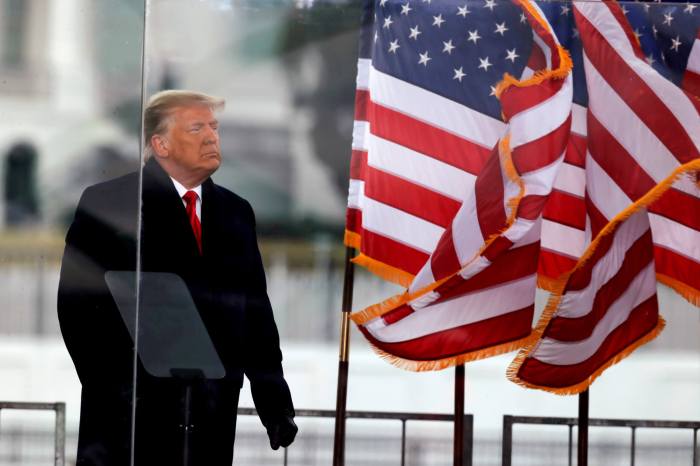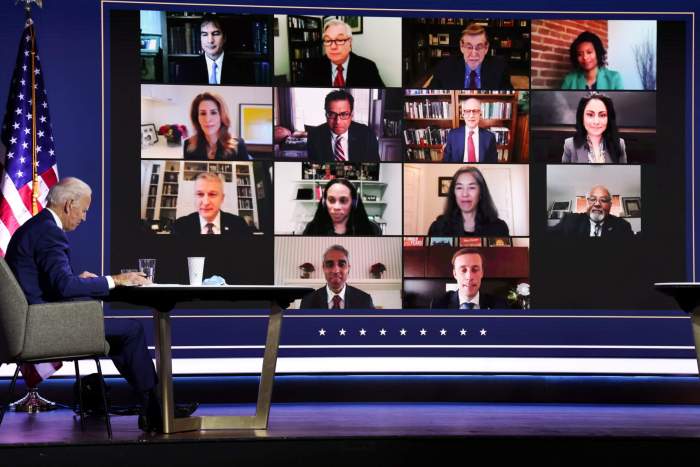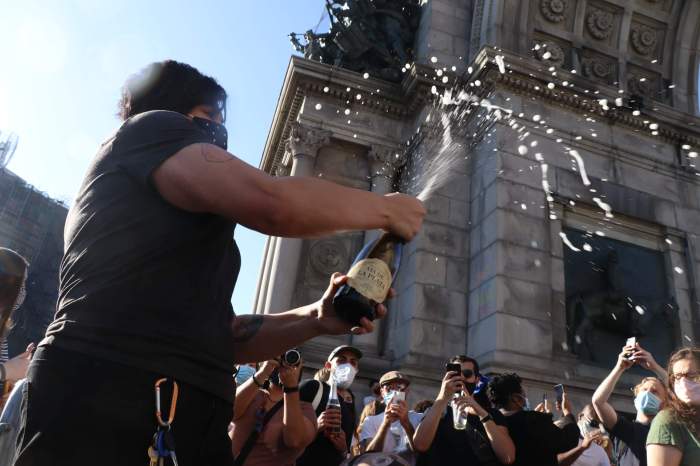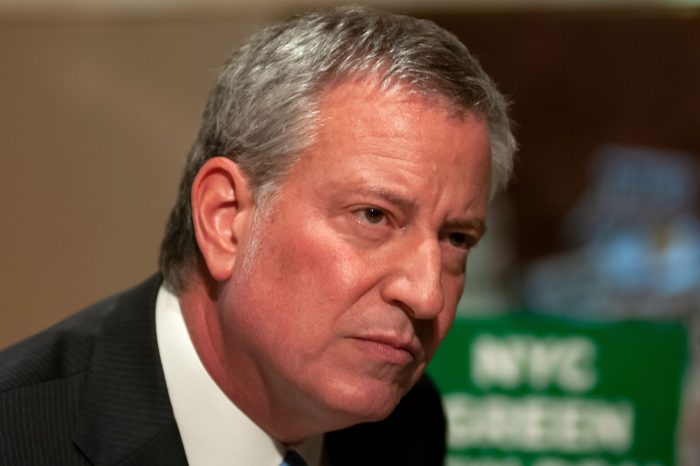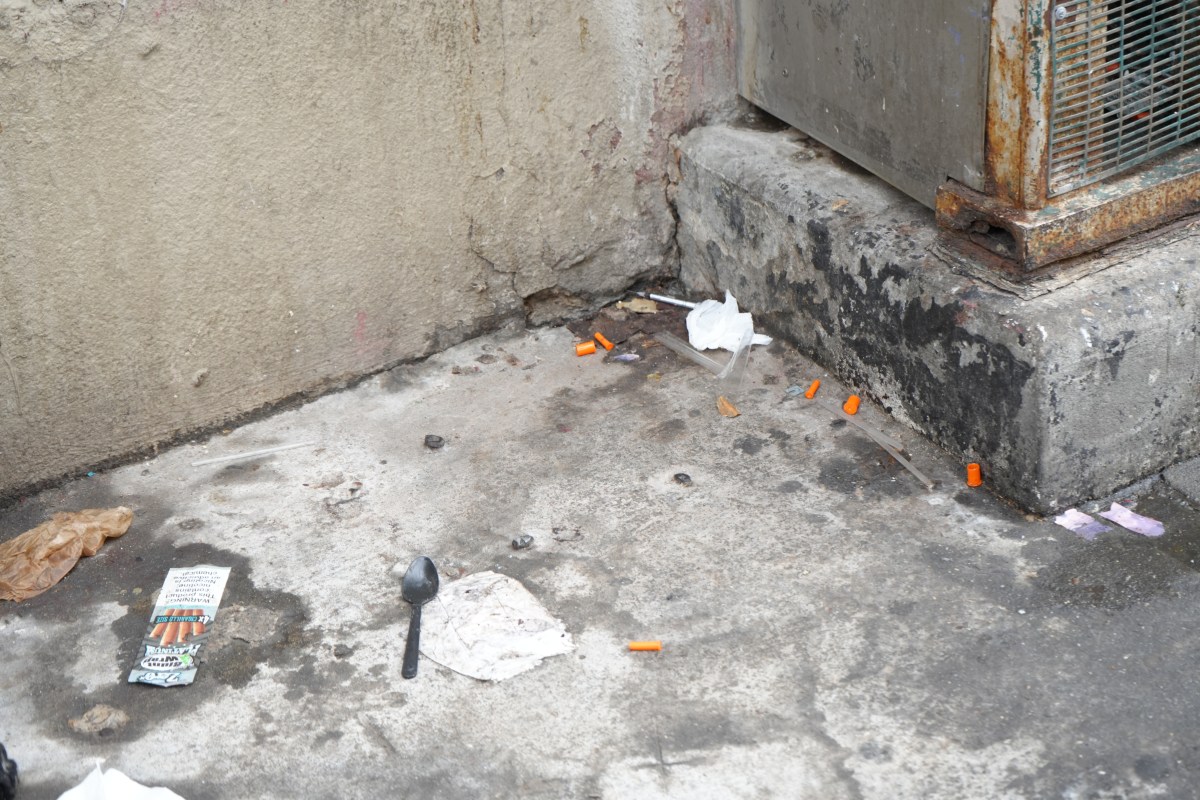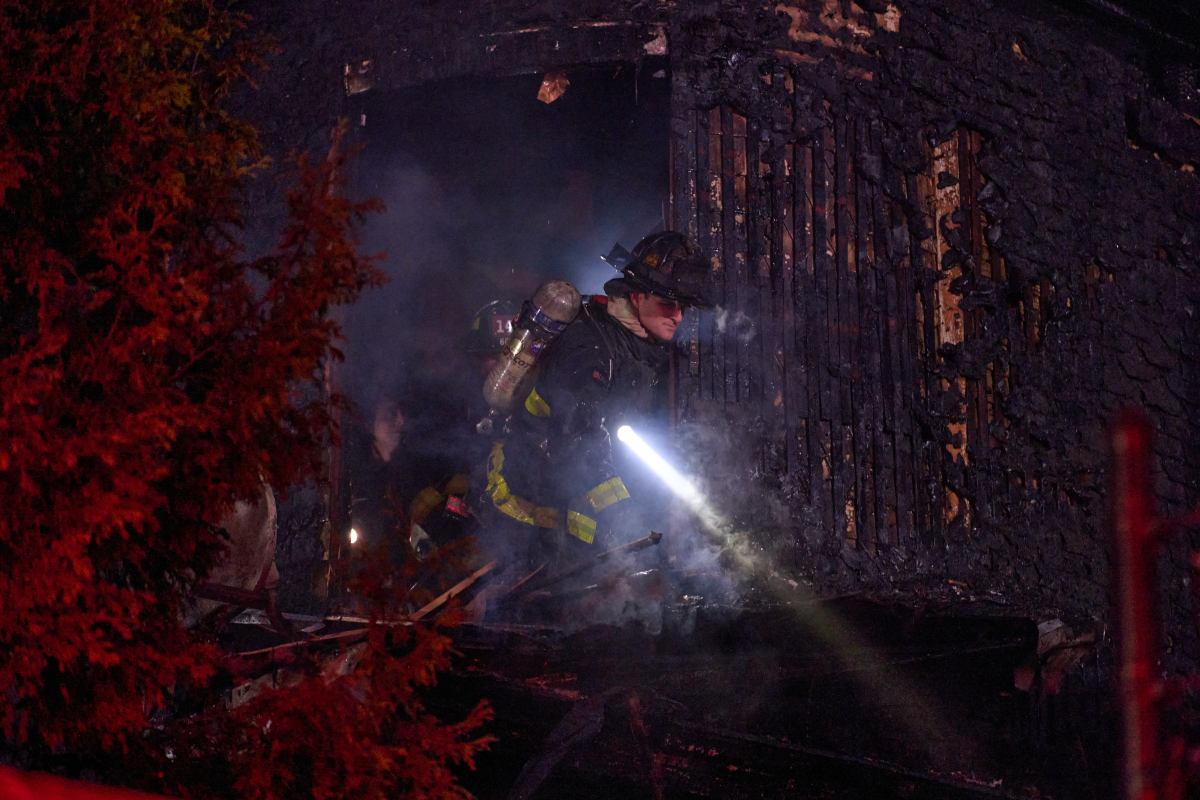Mounting tensions between New York’s 12th District candidates prompted the sharpest exchanges yet between Democratic Reps. Jerry Nadler and Carolyn Maloney on Aug. 10 at a forum hosted by one of Manhattan’s largest synagogues, Temple Emanu-El.
In the course of the debate, the third in the span of a week, the candidates sparred over Maloney’s critical stances on vaccines during the oughts and the Iran nuclear deal. Many of the questions, moderated by the Forward’s editor-in-chief and the president of New York Jewish Agenda, were geared toward Israel U.S. relations.
Two incumbents and third frontrunner Suraj Patel were largely aligned on their support of the state of Israel and opposition to the boycott, divest and sanction movement.
Maloney was an outlier in her opposition to the 2015 Iranian nuclear deal. Asked about the European Union’s recent effort to revive the nuclear weapons agreement, Maloney would not commit to supporting it, adding that she stood behind her 2015 vote against the previous deal because it was not enforceable enough or as long-term as she would have liked.
Nadler took the moment to attack Maloney on the issue, saying that if her position on the 2015 deal had been successful, Iran would have developed “a nuclear bomb with which to threaten Israel and the rest of the middle east.”
The congenial tone between Nadler and Maloney at last week’s NY1 debate grew notably more cutting during the Emanu-El forum. Expounding on the difference of their records, Nadler called Maloney “gullible enough to believe the misrepresentations of the Bush administration” and voted in favor of the Iraq War — a position that Maloney now says she regrets.
The debate also gave Nadler a platform to make his case on his status as the New York City’s last remaining Jewish House member — a distinction that Maloney downplayed.
“I think the main thing is what is the person’s merit. What is the person doing? Not only for members of the Jewish faith, but for all people,” she said.
Patel, on the other hand, who positioned himself as a staunch ally of Israel, focused less on attacking his opponents than in previous debates and more on making the case for electing a millennial zionist in opposition to what he sees as the younger left-leaning political candidates who are more critical of the Israeli state.
“If you don’t elect young Democrats, Democrats in places like New York City who want to support the U.S.-Israel relationship, and then the conversation is monopolized by only one small group of very vocal Democrats who are younger, then this relationship will become a partisan issue, not a historical bipartisan issue,” Patel argued.
The Israel lobby also came up in the context of the debate — specifically American Israel Public Affairs Committee, known as AIPAC, which has spent an unprecedented $26 million in the primary so far, targeting a number of largely progressive candidates with negative ads and endorsing dozens of Republicans, including many some who supported the movement to throw out the results of the 2020 election.
Nadler condemned the support of the “insurrectionist” candidates but said that the problem with the outsized spending is not AIPAC, the problem is Citizens United, the Supreme Court decision that stopped the government from restricting PAC spending.
In response, Maloney touted her AIPAC co-endorsement with Nadler, and said she thought it was important to elect allies to Israel.



